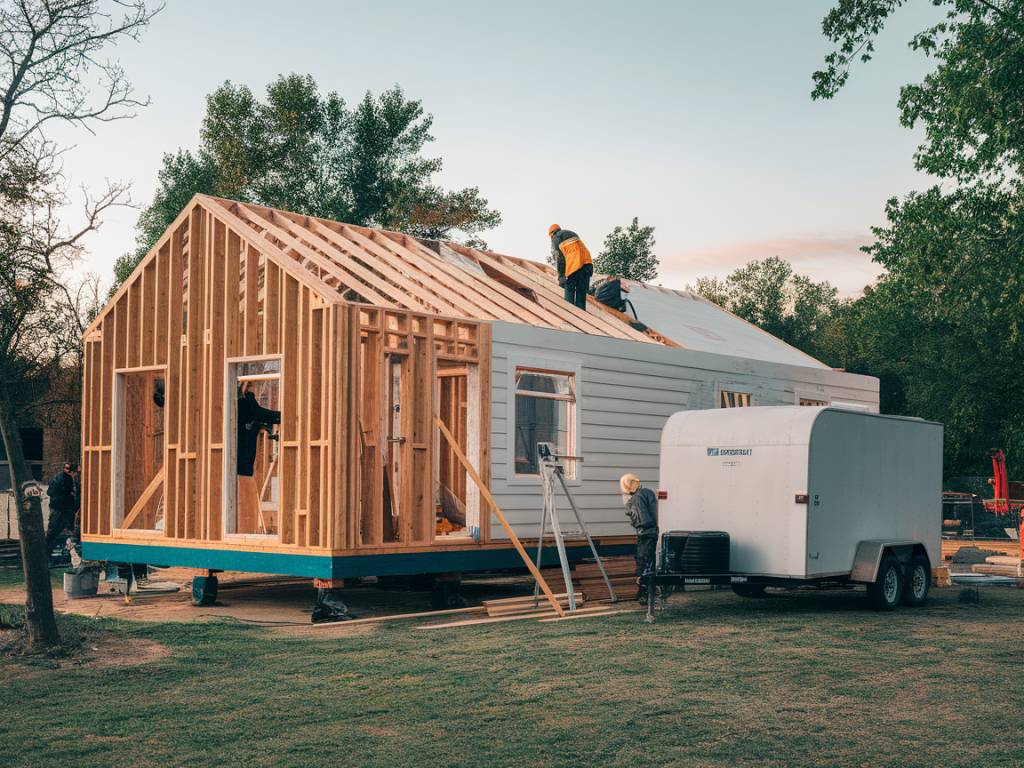What Are Prefabricated Homes?
Before diving into the pros and cons, let’s clarify what we’re talking about. Prefabricated homes, commonly known as prefab homes, are houses that are built off-site in a factory setting, then transported to the construction site for final assembly. Unlike traditional stick-built homes constructed entirely on-site, prefabs leverage modular construction techniques to speed up the building process and reduce waste.
Prefab homes aren’t a one-size-fits-all solution—they come in various forms like modular homes, panelized homes, and even tiny houses. Each offers its own set of advantages and challenges, but the underlying principle remains the same: efficiency, innovation, and streamlined construction. Now, let’s unpack the pros and cons to help you decide if this type of home is the right fit for you.
The Upsides of Prefabricated Homes
Prefabricated homes have grown in popularity for a reason. Their benefits go beyond just convenience and affordability. Here are some of the standout advantages:
- Speedy Construction: Unlike traditional construction methods that can take months—or even years—prefab homes are much faster to build. The factory assembly can often be completed in weeks, while the on-site installation usually takes a few days. This is perfect for anyone who values a shorter timeline without sacrificing quality.
- Cost-Effective: Prefabs are often more affordable than traditional homes. Mass production in a controlled factory environment means fewer delays, less waste, and lower labor costs. Plus, you’re less likely to encounter unexpected expenses like weather-related delays.
- Eco-Friendly: Building in a factory setting allows for precise material use, leading to less waste. Many prefab manufacturers also incorporate sustainable materials and energy-efficient designs, making these homes kinder to the environment.
- High-Quality Standards: Because prefab homes are built in a controlled environment, there’s a consistency in quality that’s hard to achieve on traditional construction sites. The materials are protected from weather during construction, reducing the risk of structural issues.
- Design Flexibility: Contrary to popular belief, prefab homes are no longer the cookie-cutter boxes they were once thought to be. Many manufacturers offer customizable layouts, finishes, and architectural styles, allowing homeowners to put a personal touch on their design.
The Drawbacks to Consider
No housing solution is perfect, and prefabricated homes are no exception. Here’s what you need to think about before signing on the dotted line:
- Land Costs and Zoning Restrictions: Finding suitable land can be a challenge. Zoning laws or building codes in your area may restrict where prefab homes can be built. Additionally, the cost of buying and preparing land may offset the affordability of the home itself.
- Transportation Logistics: While the house is built off-site, getting it to your location can be tricky. The transportation and installation process often require specialized equipment, and road restrictions or permits may add to your project timeline and budget.
- Limited Customization: Although more options are available than ever before, prefab homes still might not offer the same level of customization as a fully custom-built home. For those with very specific design visions, this can be a drawback.
- Financing Challenges: Securing a mortgage for a prefab home can be more complex than for a traditional home. Some lenders may categorize prefab homes differently, and you might face higher interest rates or difficulty finding suitable financing options.
- Perception Challenges: Let’s be honest—prefabricated homes still carry a stigma for some people. They’ve come a long way from their mobile home roots, but the perception may impact resale value in certain markets, depending on buyer expectations.
Real-Life Examples of Prefab Potential
Still on the fence? Let’s look at a couple of real-life situations where prefabricated homes shine. Imagine a family in a region prone to harsh winters who needs to move into their home before the snow starts falling. A prefab home can meet their deadline while providing energy-efficient insulation to handle the cold.
On the other hand, consider a young couple looking for their first home on a tight budget. Prefab options help them save money without compromising on modern amenities or comfort. Plus, they can choose an open floor plan with plenty of natural light—features that might not be feasible with a traditional build in their price range.
Hearing these scenarios might make you think: “Could this work for me?” That’s the million-dollar question, and it’s best answered by considering your priorities and limitations.
Is a Prefab Home Right for You?
When weighing the pros and cons, the decision ultimately comes down to your lifestyle, budget, and long-term goals. Are you looking for a fast, sustainable option with modern customization possibilities? Or do zoning requirements, land limitations, and potential resale challenges give you pause?
If you lean toward the benefits of prefab homes, do some additional research and talk to manufacturers or builders who specialize in this type of construction. They can help you navigate financing, design, and installation to ensure the process goes smoothly.
At the end of the day, a prefabricated home can be a fantastic option for many people, but like any big investment, success is in the details. The more you educate yourself and weigh your options, the better your outcome will be. Who knows? This innovative building method might just be the key to unlocking your dream home!
